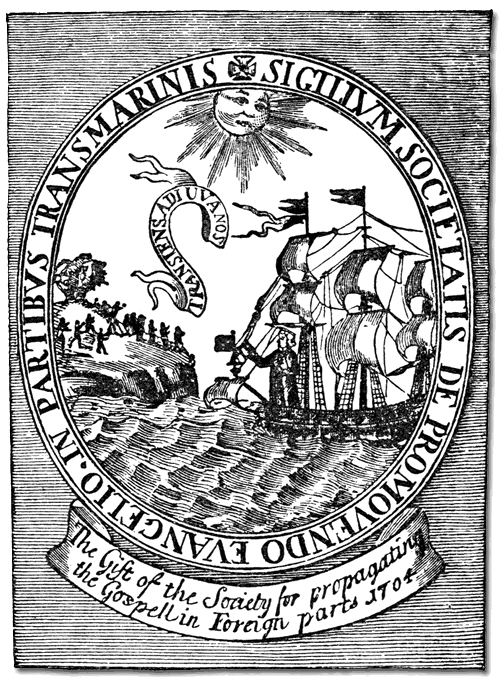Evangelical Christianity and the Great Awakening
The Protestant Evangelical Movement began with roots in the Age of Enlightenment in the late 17th and 18th Century, often referred to as the Age of Reason. The movement ushered in new theoretical ideas and practices relating to religion, the separation of Church and State, humanism, and liberty within governed affairs. In an effort to spread this message, Evangelical ministers traveled to American Colonies preaching and teaching their message of absolution and building a personal relationship with God and Jesus Christ.
By using what is called “evangelical zeal”, these ministers and missionaries were able to engage their audience, specifically the enslaved Africans. In order to keep the engagement with the enslaved African community, The Society for Propagating the Gospel in Foreign Parts sent missionaries to develop schools for religious instruction throughout the New England Colony.

Christian Faith in the African Community
The revivalistic congregations were filled with dramatic preaching, shouting, and baptism rituals. These elements of the Evangelical faith were more than enough for enslaved Africans to become fascinated and enthralled with what it meant to praise God and be a part of Christianity. Christianity provided the enslaved Africans with the most stimulating resource for expressing their freedom, justice, and aspirations, which were not allotted in their reality. The introduction of Evangelical Christianity gave enslaved Africans a physical identity that was beyond a fathomable sense of being.
Reconfiguration of Christianity
After being immersed into the Evangelical faith, enslaved Africans did not hesitate to change the way they worshipped in the realm of Christianity to better fit who they were, are, and will be as a people . While the Africans were being taught the faith of Christianity by their oppressors, they would hold their own secret services of sorts where they were able to integrate their customs from Africa into how they expressed and declared their relationship to the divine. One of those rituals/customs being the Ring Shout.
The above two videos give a frame of reference from how the ring shout ritual was used in the motherland (video on left) and how the enslaved Africans adapted it to fit their needs in Christianity (video on right). The same shuffling of feet, dance, along with the spiritual cries and moans are seen and heard, and no importance is lost.
Their Everlasting Impact...
The enslaved Africans could look past their oppressor’s presentation of Christianity and scope out what Christianity meant for them, creating their Christianity. The Christianity that enslaved Africans were able to develop was deeply rooted and immensely expressed through dance, shouting, and rhythm. The development of their Christianity enabled them to enjoy divine freedom and reaffirmed their existence.

